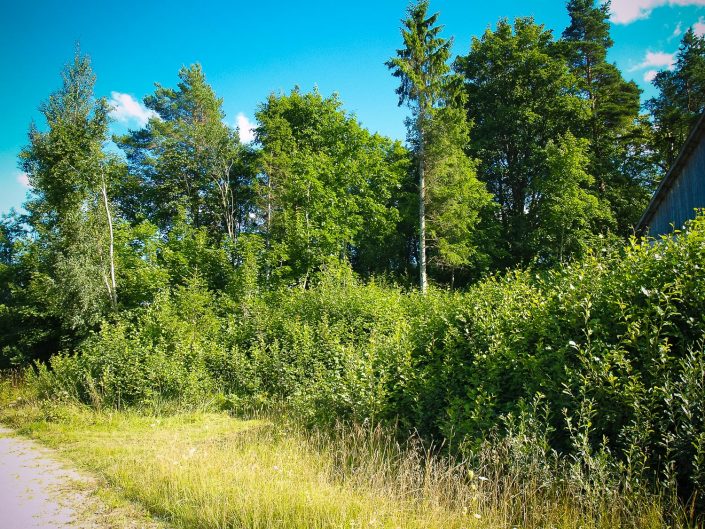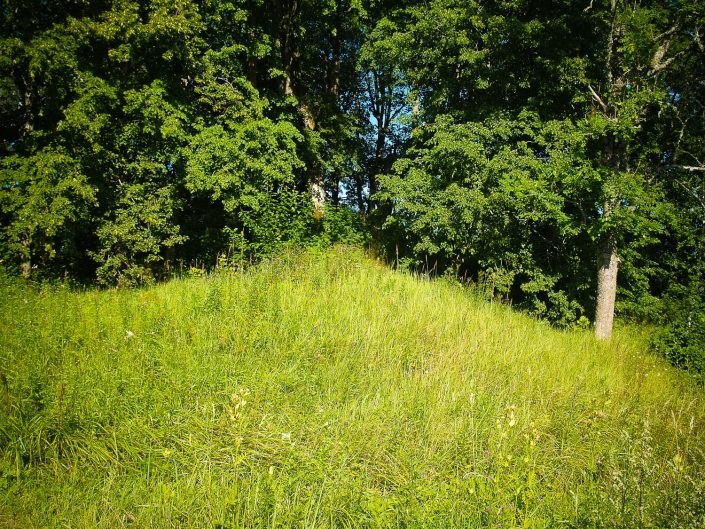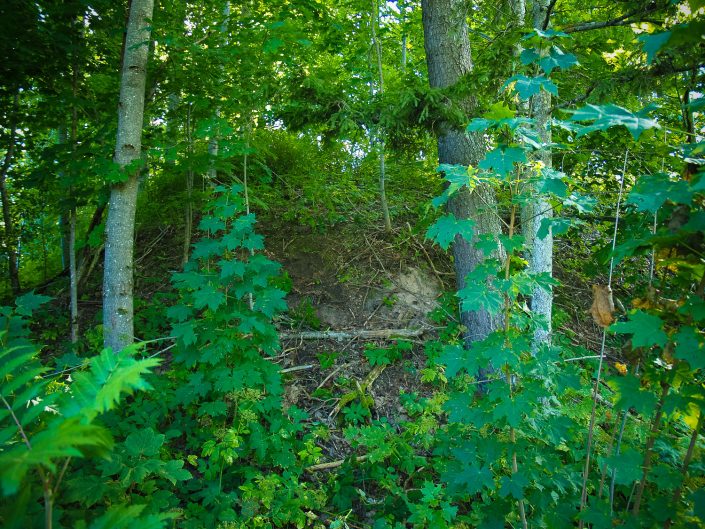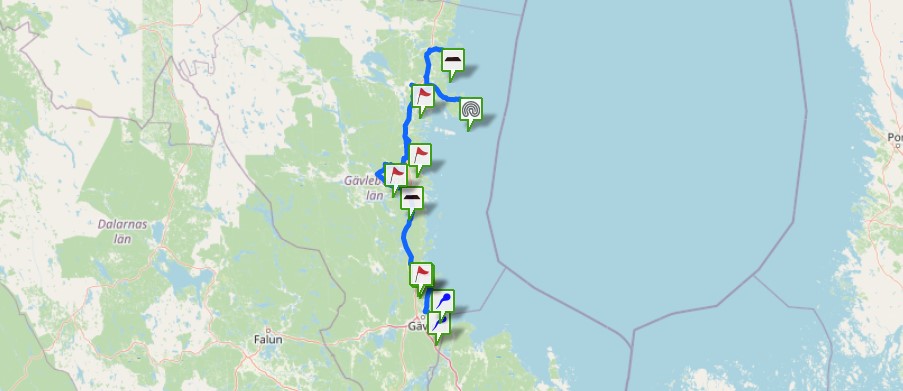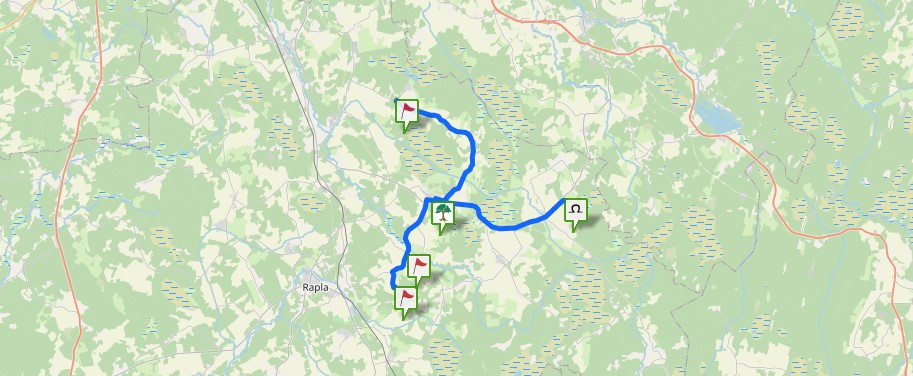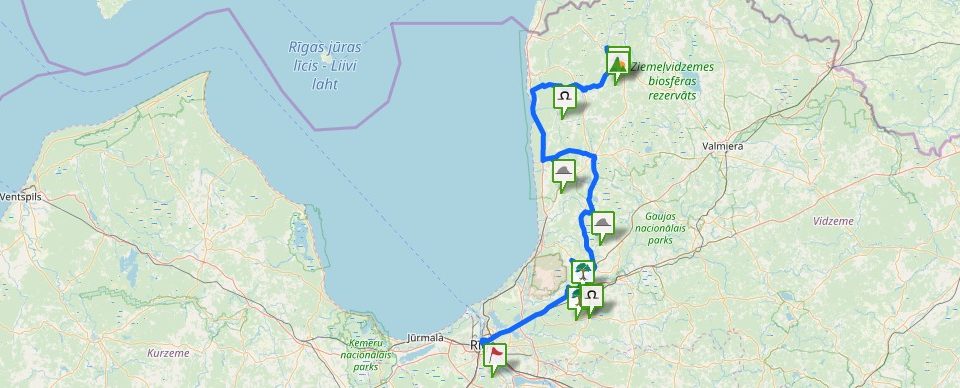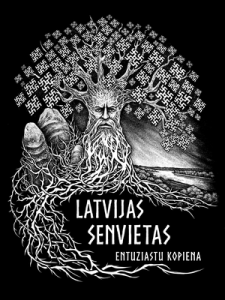The Venteri Sacrificial Hill, also called Gravefield Hill, Upuru kalns, in ancient times also the Chapel Hill, is situated next to the main road, it is around 6 m high, well-separated in the relief and covered with deciduous trees and thick underbrush; it has steep slopes of average 40 metre height. On the other side of the Venteri homestead in the valley, there is a hill which is well-separated from the surroundings – the Venteri Hill Fort. Already in 1869 August Bielenstein, when describing the Venteri Hill Fort, suggested the Venteri Sacrificial Hill to be similar to a hill fort-like shrine. In folk traditions it is mentioned that in the Sacrificial Hill there is an ancient burial site, as it was proved by the human bones found in the trenches which were dug during World War II. Still at the beginning of the 20th century there were big pine-stumps on the Sacrificial Hill reminding of the trees once mentioned in legends. Now the Sacrificial Hill name is partly forgotten and the hill is called the Gravefield Hill. Ancient history experts have not yet reached an agreement whether this might be a hill fort, however, the hill fort idea is made more likely by the nearby cult hill. It may be that later in the ancient shrine a chapel was built and a graveyard arranged around it. The Venteri Sacrificial Hill where burials had been found could indeed be a medieval graveyard, however, the name of the Sacrificial Hill is more connected with the cult and/or mythological tradition to be explored further.
It can be noticed that in the Sacrificial Hill the underbrush had been cleaned some years ago; now it has grown even more visibly. On the top of the hill there is a war-time trench; on both sides of the hill there are traces of old roads; the current road is at a slightly bigger distance from the hill. There are no signs informing about the Sacrificial Hill.
